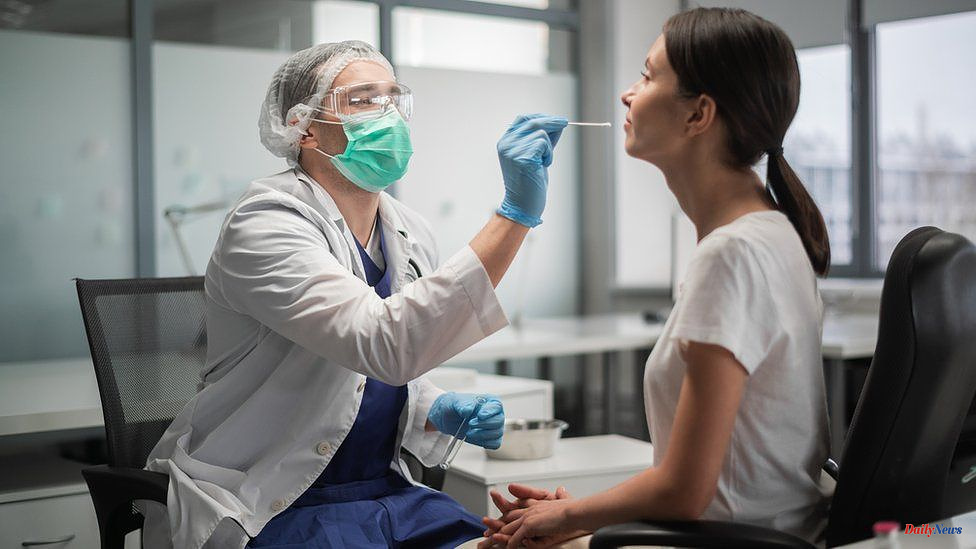There are now hundreds of thousands of cases in the UK of Omicron coronavirus, and hospital admissions continue to rise.
Omicron isn't making people more sick than previous versions, but the sheer number of people who have tested positive for Omicron still makes it difficult to isolate.
Omicron can be more similar to a cold than a cold, with some symptoms such as a runny nose, sore throat and headaches.
The possibility of losing taste or smell, new cough, and high temperatures in the past Covid variants was higher than it is now. However these are still the official symptoms.
Omicron spreads faster than the Delta variant, but experts believe it is less severe and more likely to cause illness or require hospitalization. This is due to the fact that Omicron can be protected from past infections and booster vaccines.
Omicron has peaked in South Africa, the first place it was identified. Omicron may also be occurring in London. However, scientists warn that there could be even more problems once Omicron reaches the most vulnerable and oldest populations.
Swabs taken from PCR tests can be sent to labs for analysis. They will show if the strain causing the infection is Omicron, Delta, or another variant.
Only half of UK laboratories have the technology required to detect Omicron cases. It could be detected in certain areas more quickly than others.
A full genetic analysis is required to confirm that Omicron is suspected. This can take between four and five working days.
Scientists can confirm if someone is positive for Omicron or the widely-used Delta by looking at the genetic material that was provided through testing.
The genomic sequencing of up to 20% of positive UK test results each week, or around 60,000 cases, is performed on swabs.
Although this process isn't complete, scientists can use the results to determine the proportion of cases that are new variants.
All viruses are constantly changing and mutations can result in new versions or variants.
These can make the virus more dangerous or spread faster. These are called "variants of concern" by scientists (VoC).
Because it contains many new mutations, the Omicron variant is VoC.
These are often the same virus part that vaccines target, the spike protein.
Initial concerns were raised that Omicron vaccines might not work.
Research by the UK Health Security Agency has shown that a booster vaccine can provide 88% protection against hospitalization, which is slightly lower than previous versions.
Another study showed that Omicron had a half the chance of causing an emergency or being admitted to a hospital after it was caught.
If you have symptoms, PCR tests can be ordered from the government's website for free. However, these may be limited in supply. If you require one for travel, they can be purchased from a private firm.
If you need to find out if your body is positive or negative for coronavirus, rapid or lateral flow tests will provide you with a quick answer. They can't tell which virus variant you have, however.
You must remain at home if you have Covid symptoms, or have been tested positive for Covid of any type.
If you provide two negative results on days six and seven, you can be allowed to end isolation in England and Wales.
Double-vaccinated people who come in contact with someone with Covid should undergo daily lateral flow testing for seven days.
If someone in your family tests positive for the disease, you will need to self-isolate within 10 days. This is even if you have been fully vaccinated.
More information on self-isolation in Scotland, Wales, and Northern Ireland can be found here.












